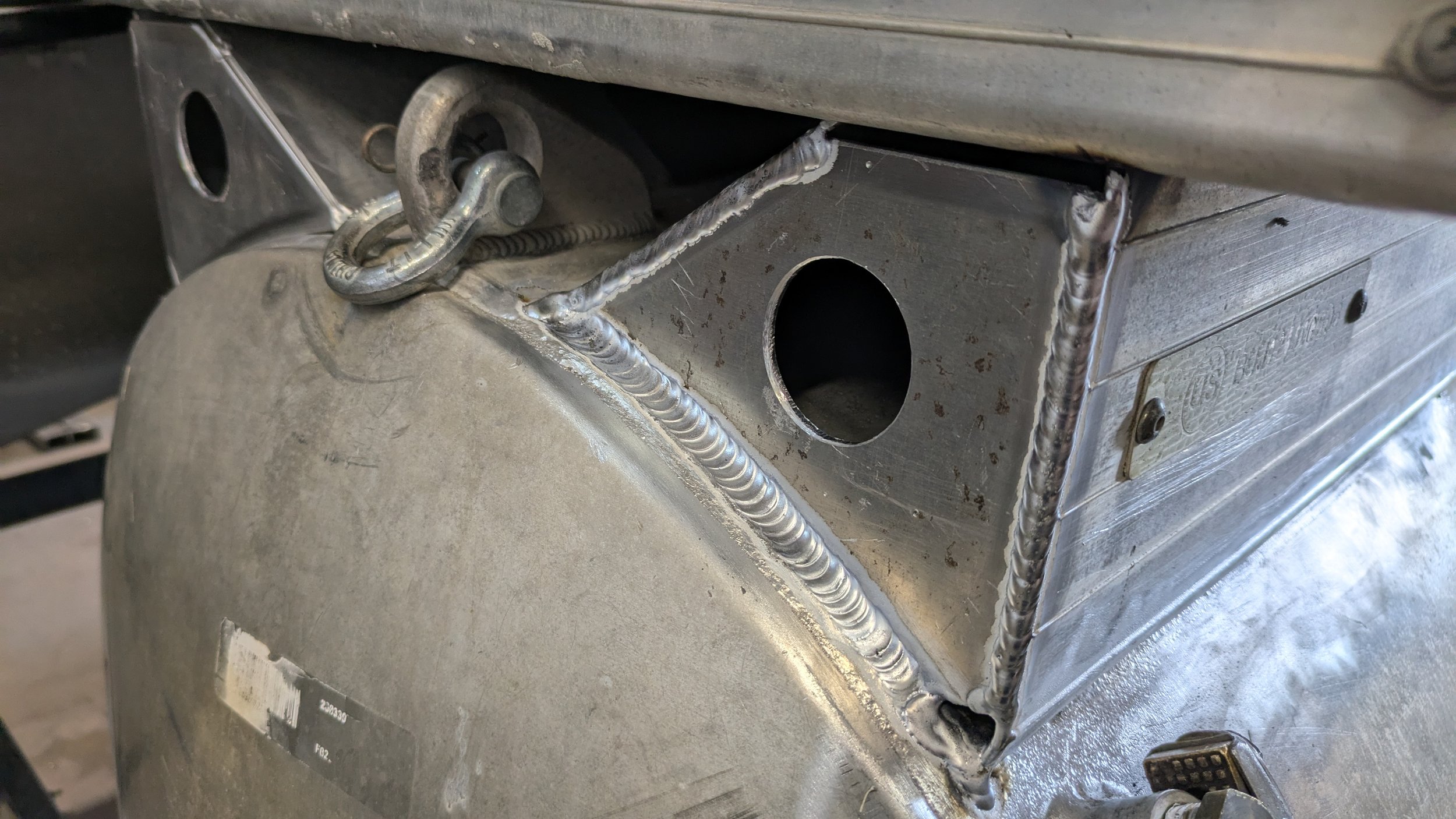Pontoon Boats
Pontoon boats—especially older models or those with larger engines—have cracking at the rear of the pontoons, often near the M-brackets (the metal brackets welded to the tubes that support the transom and motor mount).
Typical Problems Include:
Cracks at Weld Seams: Most often, cracks develop at the welds connecting the M-brackets to the pontoons. These welds are under a lot of stress due to engine weight and flexing during rough water use or trailering.
Water Leaks: As cracks spread, they allow water to seep into the pontoons, leading to buoyancy issues and an unbalanced ride. In some cases, pontoons become partially or fully flooded.
Recurring Cracks: Even after welding repairs, the cracks often return. This suggests that the root cause is structural flex or inadequate reinforcement around the mounting area.
Thin Aluminum Tubes: Some users believe Tracker uses thinner aluminum gauge compared to other manufacturers, making the pontoons more prone to stress-related failure, especially under heavy load or high-speed operation.
Transom Stress: If the motor is too powerful for the design (which can happen after repowering with a newer, heavier outboard), it can exacerbate the cracking by placing too much torque and vibration stress on the rear structure.
I make custom caps for the M-brackets that stiffen and tie everything together. This adds tremendous strength to pontoons to prevent future cracking.


